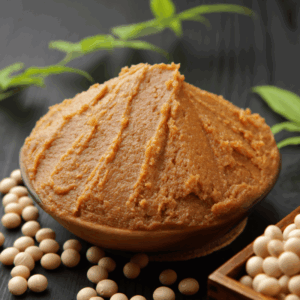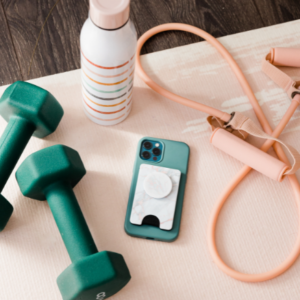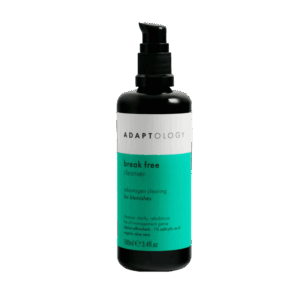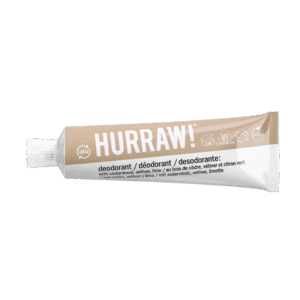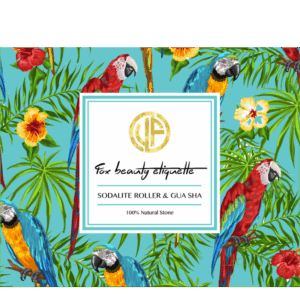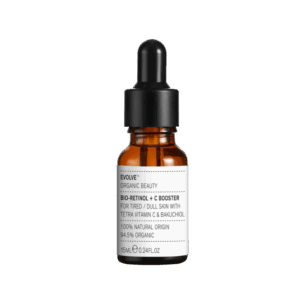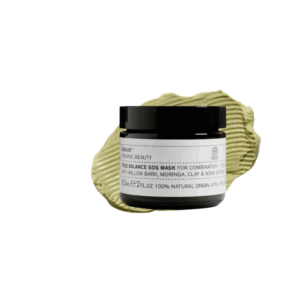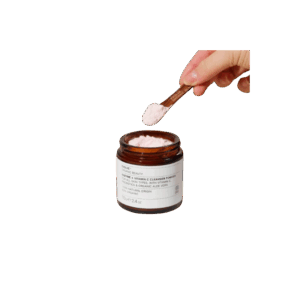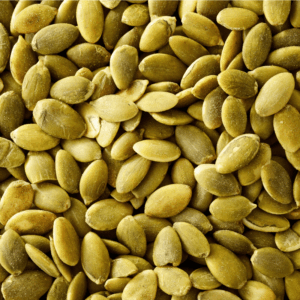
NOT all alcohol is bad: the truth about alcohol in cosmetics (and what you really need to avoid)
Not all alcohol is bad: the truth about alcohol in cosmetics (and what you really need to avoid)"
In the world of skincare, transparency is unfortunately not always the norm.
Complex formulations, unclear labels, beauty trends that confuse more than inform, greenwashing, and much more—it’s easy to feel overwhelmed and end up choosing products that, rather than helping, can actually disrupt the skin’s natural balance.
With over 20 years of experience in the fields of health, wellness, and integrated cosmetics, my goal is to guide you with clarity and expertise through this complex universe—because skincare isn’t just about aesthetics: it’s an integral part of our health.
Our skin is the body’s largest organ, a living system deeply connected to our physical, emotional, and environmental states.
Taking care of it mindfully means protecting our overall well-being.
In this article, I’ll walk you through a topic that is often misunderstood: the presence of alcohol in cosmetic products.
Not all alcohol is the same, and today I’ll help you understand which types are beneficial, which to avoid, and how to make smarter choices.
During my Personalized Coaching sessions, I always address the topics of self-care and skincare with my clients.
Because the skin, being our largest organ, reflects our overall health—its condition is linked to inflammation, diet, emotions, stress, sleep, and everything we apply to it can potentially affect our well-being.
That’s why it is so important to educate ourselves about the ingredients we choose to put on our skin and the brands we decide to trust.
One of the most frequently asked questions I’ve received over the past 20 years concerns **alcohol in cosmetics.
When we see “alcohol”listed among the ingredients in a skincare product, our first thought is often: “Will this harm my skin?”
But the truth is, not all alcohols are the same, and not all of them are harmful.
Some can even enhance the effectiveness of a formula or provide real benefits—when used correctly.
In this article, I’ll help you distinguish between “bad” alcohols (denatured) and “good” alcohols (botanical or fatty alcohols), so you can make more informed decisions and better protect your skin.
1. WHAT is alcohol un skincare ?

In INCI language (the ingredient list on cosmetic products), the term “alcohol” can refer to a wide range of substances—some of which are very different from each other in structure, origin, and function.
In general, alcohol in cosmetics can serve to:
-
Preserve the product (thanks to its antibacterial properties)
-
Improve texture (it evaporates quickly and gives a dry-touch finish)
-
Enhance skin penetration (it helps active ingredients absorb more effectively)
-
Solubilize certain ingredients (making them blend into the formula)
So, let’s move on to the practical side:
How can you recognize the different types of alcohol, and—most importantly—what are their names on a skincare label?
And are there specific skin types that should avoid them?
Purus lobortis senectus faucibus imperdiet rutrum porttitor tincidunt laoreet parturient consectetur tortor ad adipiscing id a duis hendrerit diam. A at nec rutrum nam molestie suspendisse scelerisque platea a ut commodo volutpat ullamcorper penatibus dis quis felis justo porta montes nam a vestibulum tristique parturient parturient eget tincidunt. Semper dui.
2. Denatured Alcohol: The One to Use with Caution
In the INCI list, you'll often find it as:
Alcohol Denat.
SD Alcohol
Ethanol
This is a volatile alcohol, derived either synthetically or from plant sources, but chemically denatured to make it non-ingestible (in topical products).
It has an astringent effect, dries quickly, and is mainly used in products targeted at oily or acne-prone skin.
The problem?
When used in high concentrations (i.e., listed among the first 4 ingredients on the INCI), it can:
📌Dehydrate the skin
📌Damage the skin barrier
📌Trigger irritation or sensitivity, especially in dry or reactive skin
When to avoid it:
If you have sensitive, dry, or rosacea-prone skin

3. FAT Alcohol

These alcohols have nothing to do with the drying effect of denatured alcohols.
On the contrary, they are emollient, moisturizing, and stabilizing.
📌Fatty Alcohols
📌Cetearyl Alcohol
📌Names to look for:
📌Cetyl Alcohol
📌Stearyl Alcohol
They are derived from vegetable oils (coconut, palm, rapeseed) and act as softening and stabilizing agents in emulsions.
Benefits: They don’t dry out the skin, don’t irritate, and improve the product’s texture.
Botanical or Plant-Derived Alcohols
Some examples:
📌 Alcohol derived from wheat, beet, or sugarcane
📌Alcohol from natural fermentation (e.g., Korean skincare)
These alcohols are often used in lower concentrations and combined with soothing extracts, making them gentler on the skin.

BASICALLY ALL YOU NEED TO KNOW IS ....
⛔️ 1. If you see “Alcohol Denat.” among the first 3 ingredients, be cautious.
✅ 2. If you find Cetearyl or Cetyl Alcohol, you're safe: they’re moisturizing.
📌 3. Check if there are soothing ingredients (like aloe, panthenol, hyaluronic acid) to balance the formula.
📝 4. Consider your skin type: a product suitable for oily skin may be too harsh for dry skin.
If you want to receive personalised guidance on your current routine or guidance to create a new one that respects your health you can alway book a call with me !
In the meantime here are some of the Clean Sustainable Ethical Brands I've been usi ng for years and gave to all my clients !

If you want to receive personalised guidance on your current routine or guidance to create a new one that respects your health you can alway book a call with me !
Not all alcohol is bad: the truth about alcohol in cosmetics (and what you really need to avoid)"
In the world of skincare, transparency is unfortunately not always the norm.
Complex formulations, unclear labels, beauty trends that confuse more than inform, greenwashing, and much more—it’s easy to feel overwhelmed and end up choosing products that, rather than helping, can actually disrupt the skin’s natural balance.
With over 20 years of experience in the fields of health, wellness, and integrated cosmetics, my goal is to guide you with clarity and expertise through this complex universe—because skincare isn’t just about aesthetics: it’s an integral part of our health.
Our skin is the body’s largest organ, a living system deeply connected to our physical, emotional, and environmental states.
Taking care of it mindfully means protecting our overall well-being.
In this article, I’ll walk you through a topic that is often misunderstood: the presence of alcohol in cosmetic products.
Not all alcohol is the same, and today I’ll help you understand which types are beneficial, which to avoid, and how to make smarter choices.
During my Personalized Coaching sessions, I always address the topics of self-care and skincare with my clients.
Because the skin, being our largest organ, reflects our overall health—its condition is linked to inflammation, diet, emotions, stress, sleep, and everything we apply to it can potentially affect our well-being.
That’s why it is so important to educate ourselves about the ingredients we choose to put on our skin and the brands we decide to trust.
One of the most frequently asked questions I’ve received over the past 20 years concerns **alcohol in cosmetics.
When we see “alcohol”listed among the ingredients in a skincare product, our first thought is often: “Will this harm my skin?”
But the truth is, not all alcohols are the same, and not all of them are harmful.
Some can even enhance the effectiveness of a formula or provide real benefits—when used correctly.
In this article, I’ll help you distinguish between “bad” alcohols (denatured) and “good” alcohols (botanical or fatty alcohols), so you can make more informed decisions and better protect your skin.
1. WHAT is alcohol un skincare ?

In INCI language (the ingredient list on cosmetic products), the term “alcohol” can refer to a wide range of substances—some of which are very different from each other in structure, origin, and function.
In general, alcohol in cosmetics can serve to:
-
Preserve the product (thanks to its antibacterial properties)
-
Improve texture (it evaporates quickly and gives a dry-touch finish)
-
Enhance skin penetration (it helps active ingredients absorb more effectively)
-
Solubilize certain ingredients (making them blend into the formula)
So, let’s move on to the practical side:
How can you recognize the different types of alcohol, and—most importantly—what are their names on a skincare label?
And are there specific skin types that should avoid them?
Purus lobortis senectus faucibus imperdiet rutrum porttitor tincidunt laoreet parturient consectetur tortor ad adipiscing id a duis hendrerit diam. A at nec rutrum nam molestie suspendisse scelerisque platea a ut commodo volutpat ullamcorper penatibus dis quis felis justo porta montes nam a vestibulum tristique parturient parturient eget tincidunt. Semper dui.
2. Denatured Alcohol: The One to Use with Caution
In the INCI list, you'll often find it as:
Alcohol Denat.
SD Alcohol
Ethanol
This is a volatile alcohol, derived either synthetically or from plant sources, but chemically denatured to make it non-ingestible (in topical products).
It has an astringent effect, dries quickly, and is mainly used in products targeted at oily or acne-prone skin.
The problem?
When used in high concentrations (i.e., listed among the first 4 ingredients on the INCI), it can:
📌Dehydrate the skin
📌Damage the skin barrier
📌Trigger irritation or sensitivity, especially in dry or reactive skin
When to avoid it:
If you have sensitive, dry, or rosacea-prone skin

3. FAT Alcohol

These alcohols have nothing to do with the drying effect of denatured alcohols.
On the contrary, they are emollient, moisturizing, and stabilizing.
📌Fatty Alcohols
📌Cetearyl Alcohol
📌Names to look for:
📌Cetyl Alcohol
📌Stearyl Alcohol
They are derived from vegetable oils (coconut, palm, rapeseed) and act as softening and stabilizing agents in emulsions.
Benefits: They don’t dry out the skin, don’t irritate, and improve the product’s texture.
Botanical or Plant-Derived Alcohols
Some examples:
📌 Alcohol derived from wheat, beet, or sugarcane
📌Alcohol from natural fermentation (e.g., Korean skincare)
These alcohols are often used in lower concentrations and combined with soothing extracts, making them gentler on the skin.

BASICALLY ALL YOU NEED TO KNOW IS ....
⛔️ 1. If you see “Alcohol Denat.” among the first 3 ingredients, be cautious.
✅ 2. If you find Cetearyl or Cetyl Alcohol, you're safe: they’re moisturizing.
📌 3. Check if there are soothing ingredients (like aloe, panthenol, hyaluronic acid) to balance the formula.
📝 4. Consider your skin type: a product suitable for oily skin may be too harsh for dry skin.
If you want to receive personalised guidance on your current routine or guidance to create a new one that respects your health you can alway book a call with me !
In the meantime here are some of the Clean Sustainable Ethical Brands I've been usi ng for years and gave to all my clients !

If you want to receive personalised guidance on your current routine or guidance to create a new one that respects your health you can alway book a call with me !


